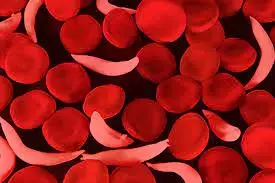- Home
- Medical news & Guidelines
- Anesthesiology
- Cardiology and CTVS
- Critical Care
- Dentistry
- Dermatology
- Diabetes and Endocrinology
- ENT
- Gastroenterology
- Medicine
- Nephrology
- Neurology
- Obstretics-Gynaecology
- Oncology
- Ophthalmology
- Orthopaedics
- Pediatrics-Neonatology
- Psychiatry
- Pulmonology
- Radiology
- Surgery
- Urology
- Laboratory Medicine
- Diet
- Nursing
- Paramedical
- Physiotherapy
- Health news
- Fact Check
- Bone Health Fact Check
- Brain Health Fact Check
- Cancer Related Fact Check
- Child Care Fact Check
- Dental and oral health fact check
- Diabetes and metabolic health fact check
- Diet and Nutrition Fact Check
- Eye and ENT Care Fact Check
- Fitness fact check
- Gut health fact check
- Heart health fact check
- Kidney health fact check
- Medical education fact check
- Men's health fact check
- Respiratory fact check
- Skin and hair care fact check
- Vaccine and Immunization fact check
- Women's health fact check
- AYUSH
- State News
- Andaman and Nicobar Islands
- Andhra Pradesh
- Arunachal Pradesh
- Assam
- Bihar
- Chandigarh
- Chattisgarh
- Dadra and Nagar Haveli
- Daman and Diu
- Delhi
- Goa
- Gujarat
- Haryana
- Himachal Pradesh
- Jammu & Kashmir
- Jharkhand
- Karnataka
- Kerala
- Ladakh
- Lakshadweep
- Madhya Pradesh
- Maharashtra
- Manipur
- Meghalaya
- Mizoram
- Nagaland
- Odisha
- Puducherry
- Punjab
- Rajasthan
- Sikkim
- Tamil Nadu
- Telangana
- Tripura
- Uttar Pradesh
- Uttrakhand
- West Bengal
- Medical Education
- Industry
LentiGlobin effective for Sickle Cell Disease, finds NEJM Study

One-time treatment with LentiGlobin is effective for Sickle Cell Disease, according to a recent study published in the New England Journal of Medicine.
Sickle cell disease is characterized by the painful recurrence of vaso-occlusive events. Gene therapy with the use of LentiGlobin for sickle cell disease (bb1111; lovotibeglogene autotemcel) consists of autologous transplantation of hematopoietic stem and progenitor cells transduced with the BB305 lentiviral vector encoding a modified β-globin gene, which produces antisickling hemoglobin, HbAT87Q.
In this ongoing phase 1–2 study, we optimized the treatment process in the initial 7 patients in Group A and 2 patients in Group B with sickle cell disease. Group C was established for the pivotal evaluation of LentiGlobin for sickle cell disease, and we adopted a more stringent inclusion criterion that required a minimum of four severe vaso-occlusive events in the 24 months before enrollment. In this unprespecified interim analysis, we evaluated the safety and efficacy of LentiGlobin in 35 patients enrolled in Group C. Included in this analysis was the number of severe vaso-occlusive events after LentiGlobin infusion among patients with at least four vaso-occlusive events in the 24 months before enrollment and with at least 6 months of follow-up.
The results of the study are:
As of February 2021, cell collection had been initiated in 43 patients in Group C; 35 received a LentiGlobin infusion, with a median follow-up of 17.3 months (range, 3.7 to 37.6). Engraftment occurred in all 35 patients. The median total hemoglobin level increased from 8.5 g per deciliter at baseline to 11 g or more per deciliter from 6 months through 36 months after infusion. HbAT87Q contributed at least 40% of total hemoglobin and was distributed across a mean (±SD) of 85±8% of red cells. Hemolysis markers were reduced. Among the 25 patients who could be evaluated, all had resolution of severe vaso-occlusive events, as compared with a median of 3.5 events per year (range, 2.0 to 13.5) in the 24 months before enrollment. Three patients had a nonserious adverse event related or possibly related to LentiGlobin that resolved within 1 week after onset. No cases of hematologic cancer were observed during up to 37.6 months of follow-up.
Thus, the researchers concluded that one-time treatment with LentiGlobin resulted in sustained production of HbAT87Q in most red cells, leading to reduced hemolysis and complete resolution of severe vaso-occlusive events.
Reference:
Biologic and Clinical Efficacy of LentiGlobin for Sickle Cell Disease by Julie Kanter, et al. published in the new England journal of medicine.
https://www.nejm.org/doi/10.1056/NEJMoa2117175
Dr. Shravani Dali has completed her BDS from Pravara institute of medical sciences, loni. Following which she extensively worked in the healthcare sector for 2+ years. She has been actively involved in writing blogs in field of health and wellness. Currently she is pursuing her Masters of public health-health administration from Tata institute of social sciences. She can be contacted at editorial@medicaldialogues.in.
Dr Kamal Kant Kohli-MBBS, DTCD- a chest specialist with more than 30 years of practice and a flair for writing clinical articles, Dr Kamal Kant Kohli joined Medical Dialogues as a Chief Editor of Medical News. Besides writing articles, as an editor, he proofreads and verifies all the medical content published on Medical Dialogues including those coming from journals, studies,medical conferences,guidelines etc. Email: drkohli@medicaldialogues.in. Contact no. 011-43720751


